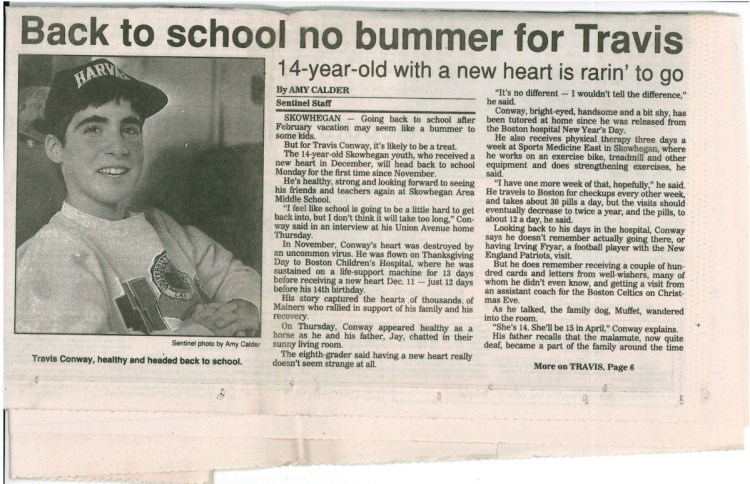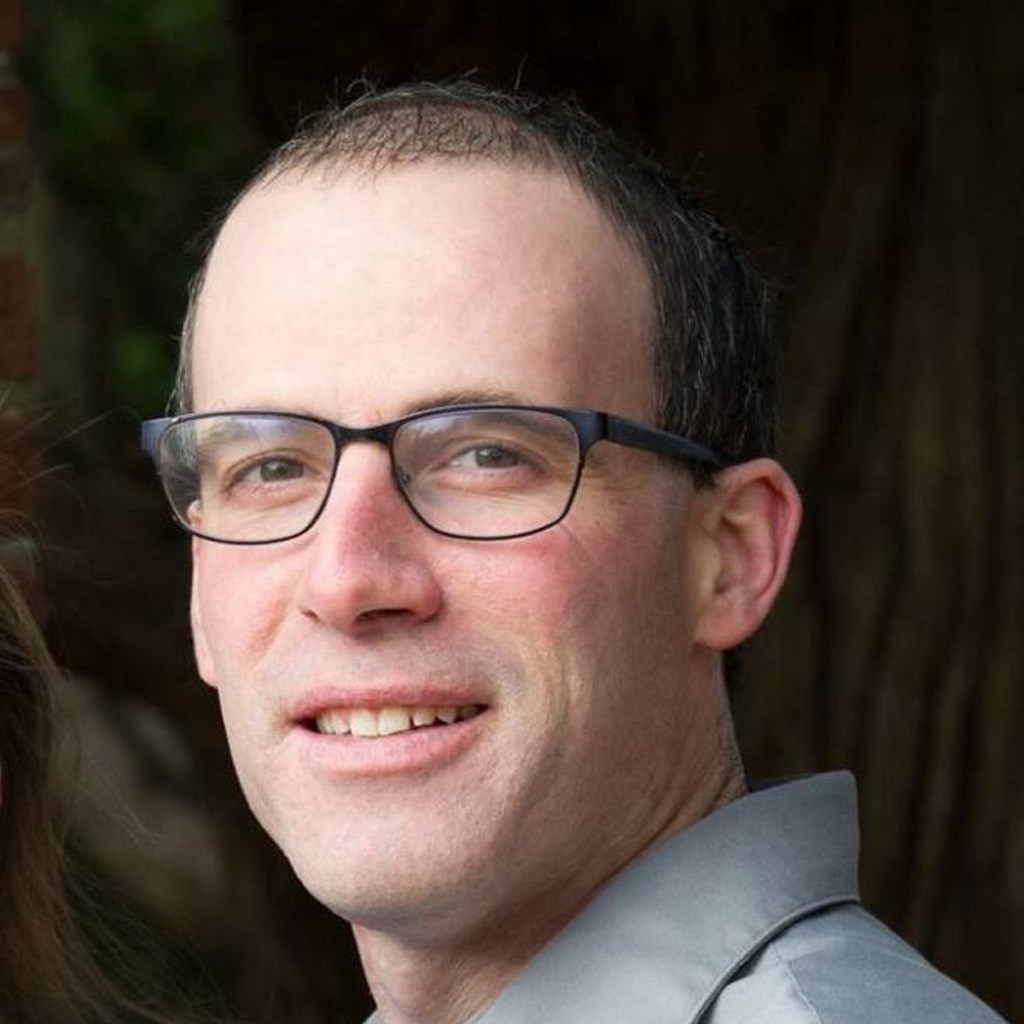Few stories I’ve covered in my career have given me more joy than those involving Travis Conway, who recently turned 40.
Twenty-six years ago, when he was 13, he underwent a heart transplant at Boston Children’s Hospital after being on life support for 13 days.
A Skowhegan Area Middle School eighth-grader, he was a beloved baseball and basketball player. His heart was destroyed by an uncommon virus that came on quickly and landed him at death’s door.
I knew his parents, Gail and Jay Conway, and wrote a series of stories about the desperate search for a heart, as Travis’ doctor told me he would not survive long without one.
The Skowhegan community rallied big-time, holding all sorts of fundraisers and garnering about $45,000 to help defray medical and other expenses.
He went into the hospital on Thanksgiving Day in 1992. Two weeks later, a heart was found and he underwent an eight-hour surgery.
Skowhegan residents didn’t sleep, awaiting news of his condition every minute of the day and night.
He was in critical condition after surgery, but in a few days, his condition was upgraded to serious and then to fair. Soon he was talking, walking and recovering.
Three weeks later, he arrived in Skowhegan, and I felt privileged to interview and photograph him at his home, his parents standing by happily.
It was a Christmas miracle, everyone said. I get chills even thinking about it now.
Reading those old stories I wrote when I was younger than Travis is now and he was living without a heart at Children’s Hospital brings back the feelings we all had of desperation as the days ticked by. We felt enormous relief and gratitude when a heart finally became available.
Several years ago, I spoke with Travis by phone from his home in Massachusetts, as I was writing a column about the importance of organ donation, and he was happy to comment.
Last week, I had the good fortune to re-connect with him after his mother, who works in downtown Waterville and who I run into occasionally, updated me on the latest.
Travis’ heart still is working fine, but he now needs a kidney, and finding a match is tricky because in certain people who have had multiple organ transplants and blood transfusions — and even pregnancies — the immune system can build antibodies to tissue types.
“It doesn’t always happen, and the reason why it happens remains a mystery, but it is happening to me,” Travis said. “In this situation, matching someone for a kidney can be difficult. If I have built antibodies to a tissue type in a potential donor’s kidney, it becomes a high-risk transplant and they won’t do it. If they did, my immune system would immediately start to reject it and the kidney wouldn’t last very long.”
He has had a previous kidney transplant, but it eventually failed.
Travis has been on dialysis six months. He goes three days a week for four hours each time.
It is time-consuming, but fortunately, he works from a laptop. He is a senior auditor for a company that insures law firms and works mostly from his home in Westford, Massachusetts, not far from his doctors at Brigham and Women’s Hospital in Boston.
Travis’ voice is strong and exudes confidence. We talked about our connection from 26 years ago and I told him how happy I am that he has done so well.
He said he feels pretty good, still skis and is engaged to be married to his fiancée, Kath, but they have had to put the wedding off twice because he wants to be healthy when they tie the knot.
“She’s been great. She has three kids from a previous marriage and we have them 50 percent of the time,” he said.
Anyone interested in donating a kidney should contact Travis at Kidney4trav@gmail.com and he will respond. His Facebook page, kidney4trav, explains certain characteristics a person must have to be a possible match.
Donating a kidney means being in the hospital only one or two nights, according to Travis, whose cousin donated a kidney to him and was doing yard work a week later, he said. A kidney from a cadaver may take a while to work, whereas a live kidney starts working immediately and the life expectancy is longer, according to Travis.
“That’s the best outcome for me is to have a living donor,” he said.
I’d love to be able to write a story about Travis getting a kidney 27 years after he got his heart, which continues to beat strong.
“Honestly, I don’t think you could count on two hands the number of people who have had a heart that lasted that many years,” he said. “It happened to be a very good match at the time. I feel very lucky.”
Travis has reconnected with former Skowhegan classmates at reunions. Last year, two of them, Rob Harville and Christian Savage, hosted a tournament at Lakewood Golf Course in Madison that raised $8,000 for Travis.
“It was a nice little cushion to put away for medical bills,” he said.
Many of those who rallied for Travis in Skowhegan long ago as he waited for a heart are now gone, but for those who remain, the memories of that Christmas miracle are poignant.
I’m pretty confident that, if they learn he needs a kidney, they’ll once again spread the word.
Like wildfire.
Amy Calder has been a Morning Sentinel reporter 31 years. Her column appears on Mondays. She may be reached at acalder@centralmaine.com. For previous Reporting Aside columns, go to centralmaine.com.
Send questions/comments to the editors.




Comments are no longer available on this story